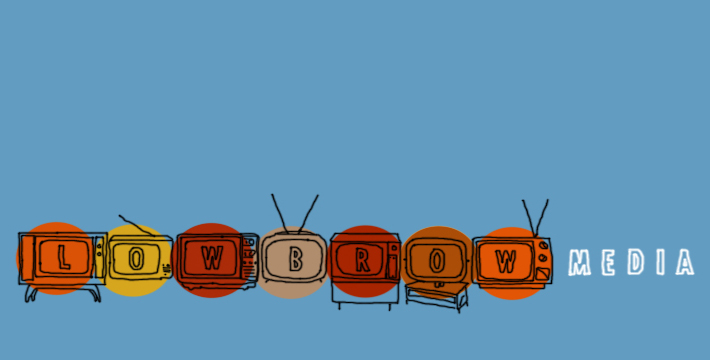When the Kindle and other eReaders came out not so long ago, I wanted one. The idea of being able to carry a bookshelf’s worth of books with me was appealing. That is, until I took a look at my actual bookshelf. My books are pretty much split down the middle with regular books making up half of my library and the other half being comic book trades and hardcovers. I also thought about the number of monthly issues I was getting and realized that none of those devices were versatile enough to be completely useful to me. Even now, I read more comic books than I do regular books on a regular basis. With the iPad, I felt that here was something that solved both of those problems, which it would, if it weren’t for one other problem. There is no decent legit digital comics subscription or purchasing service.
Before the both of you still reading this send me emails saying, “You’re wrong, there’s Marvel’s Digital Comics Unlimited service!” let me point out my biggest issue with that service. It is a subscription service based on access to a library of issues and not on the sale of individual issues. Yes, you get access to thousands of titles but when your subscription is up, you have nothing to show for it in the end. You are also at the mercy of Marvel to choose what content to put up and when. You’re not getting access to the latest issues and you might not even get access to stuff you specifically want anytime soon. Before I go on, let me wax nostalgic for a bit...
Back in the day, you could open up most comic books and inside you’d find a page that you could cut out or copy the information from. On this page there would be a selection of titles that you could subscribe to and you marked off what you wanted. You then sent this in with your money for the subscription and once a month you would receive those books in the mail. When I think of comic book subscriptions, that’s what I think of. Well, that and having my local comic book store hold the titles I want, but we’ll talk about stores soon enough.
I also realize that Marvel has individual issues available in the PlayStation Digital Comics store. A nice step in the right direction but purchasing from there requires you to read your books on a PSP. It’s a nice device but the screen is just not big enough to really do justice to a comic book page. Also, it suffers from the same problem as Marvel’s subscription service in that the number of current titles is non-existent; I think the most recent stuff on there is from 2008.
What I’m hoping to see now that a device like the iPad exists is a true digital comics subscription service/marketplace. Imagine, if you will, an iTunes comic book store or something like it. You go in and select the titles you want to subscribe to, give them your credit card number or load an account with money via prepaid service cards, and then each time a new issue is made available it automatically downloads to be viewed either on your computer, color eReader, or whatever device you have that can view the file. Since most (I don’t know if I can say all or not) comic books are produced and finished in the computer, it shouldn’t be difficult to output them to a format like .pdf or even a proprietary format. This store could also make available to readers whole catalogs of issues, hard to find material that commands a hefty price on the secondary market. Crossovers and miniseries could be packaged and offered in sets. Also, this makes possible a high quality digital archive of books that might vanish forever due to limited runs or just from being so old they’re turing into dust. All of this, and probably a few other things, brings up another question. What about brick and mortar comic book stores?
I love brick and mortar comic book stores and I have a feeling so do a lot of comic publishers and creators. These are the places where a lot of disenfranchised people came together and formed a community. These are the places where now mainstream components of mainstream entertainment took root and grew. Do I think a model like the one I just outlined could spell the end of comic book stores in the same way that iTunes and other digital distribution sites hit record stores? No. There will probably always be the collector, that person that wants to have the physical artifact in her hands, that loves the feel of the page, that loves to flip back and forth quickly from front to back to middle to front again. There will also be the merchandising, the t-shirts, the action figures, the glasses, the statues, none of which can be delivered digitally (USPS, UPS, FedEx, etc. are analog). And there will probably also always be people like me that love to go into a store and see the faces of the employees and engage in lively conversations about who would beat who in a fight between Iron Man and Batman.
Also, there are ways the digital model can be modified to give an advantage to brick and mortar store. Stuff like making new books available in digital format a week after the physical book has come out, making prepaid cards available only at comic book stores (each store receiving a cut from the sales), and marketing special digital incentives at stores such as codes that would allow access to certain books. Just because record stores had to suffer at the hands of the internet doesn’t mean comic book stores have to. Fortunately, they have a friend in the publishers.
I think that if the publishers wanted to make the quick and easy buck on digital distribution, they would have done so by now. The only thing stopping them, I feel, has been the love they have for the medium and for the people that helped make it all possible. Hopefully they can take the reigns before a new generation comes in that doesn’t share their view and changes things for the worse. What can the publishers do? They can take control and establish standards for digital distribution, set up their own storefronts, and make a unified front against companies like Apple and Amazon that feel they have control over digital content.
With technology like the iPad and other color eReaders on the way, it feels like it’s only a matter of time before a more dynamic digital comics experience arrives. I just hope that it doesn’t mark the end of a fantastic cultural experience that’s grown around comic books, the stores, and the readers.



No comments:
Post a Comment